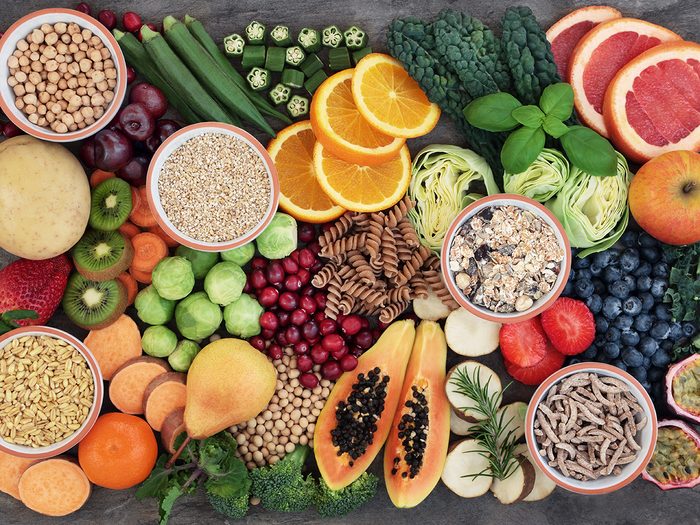
Falling short on fibre
Almost everyone could use more dietary fibre. In general, people don’t get enough of this plant-based nutrient, which can be incredibly beneficial for your health. Why is it challenging to get enough fibre? Low-fibre diets are widespread, and a lot of food we love to eat lacks the fibre that protects against constipation and digestive issues (and offers a bunch of other health benefits).
Fibre supplements are having a moment, but many questions remain: Are they safe? And are they truly a healthy substitute for natural sources of fibre? Read on to see what registered dietitians think and the fibre supplements they recommend for boosting regularity and overall health.

What is fibre?
Fibre is a type of carbohydrate that the body can’t digest. There are two types of fibre: soluble and insoluble.
Soluble fibre draws water to it, forming a gel during digestion and slowing the digestive process. You’ll find it in oats, beans, nuts and seeds, barley, and fruits and veggies like peas, apples, citrus, and carrots. It’s found in psyllium, too, which is a common fibre supplement.
Insoluble fibre adds bulk to the stool, helping food move through your digestive tract more quickly and leading to more regular bowel movements. It’s found in nuts, beans, wheat bran, whole grains, and veggies like cauliflower and green beans.
Fibre is important for regulating the body’s processing of sugar and helps keep hunger and blood sugar levels in check. Not only that, but it promotes regular bowel movements, which can help you avoid constipation. Eating more fibre is linked to healthier digestion, a lower risk for cardiovascular disease, lower cholesterol levels, reduced weight, and more.
How much fibre do you need?
According Health Canada, women need 25 grams of fibre daily and men need 38. Half of Canadians are currently getting that much fibre.
(Related: 5 Budget-Friendly Vegetables That Are a Great Source of Fibre)
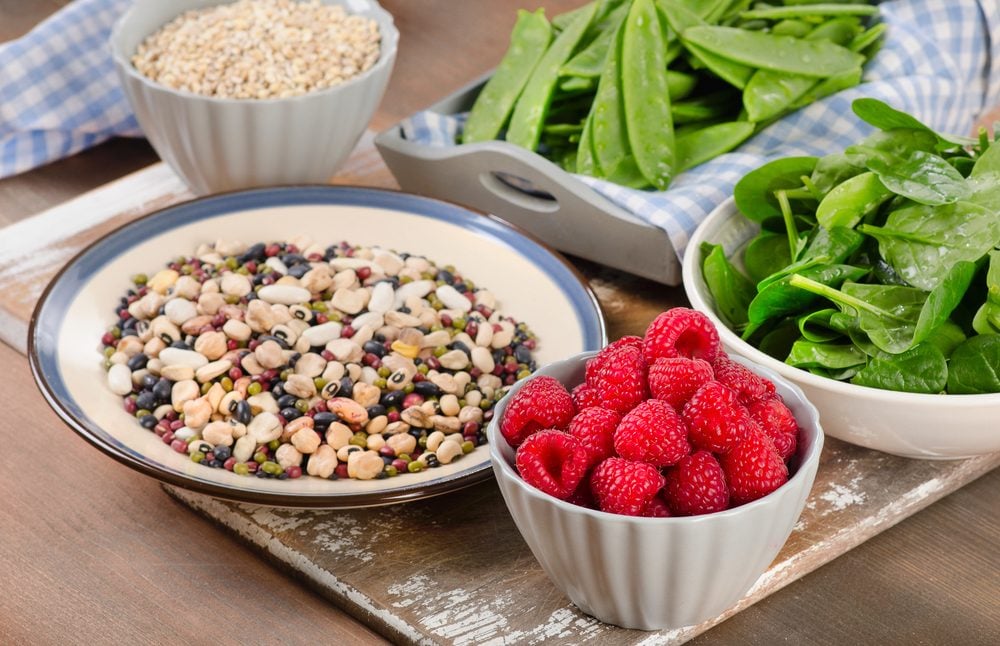
Should you use a fibre supplement?
Unsurprisingly, most health experts concur that you should first try to up your fibre content through naturally fibre-rich foods. You can find fibre content listed on the nutrition facts label on any packaged food. According to the USDA, some of the best natural sources of fibre include beans and peas, vegetables, fruits, whole grains, and nuts. “Fibre sources are derived from plant material, as animal-based foods do not contain fibre,” explains Orlando-based registered dietitian Gabrielle Mancella.
But there is a place for fibre supplements. “Should you find that your diet does not allow you the opportunity to consume enough in whole-food form, supplementing is a valuable alternative,” says Mancella. “Most plant sources can now be found in powdered form and added to different foods, such as smoothies, meatballs, and sauces, as they come unflavored.”
Since less than half of Canadians are meeting the suggested daily fibre consumption, many people are unsurprisingly seeking out fibre supplements to help them meet their needs, adds Lauren Manaker, a registered dietitian nutritionist in Charleston, South Carolina. “I always recommend trying to eat a diet rich in fruits, veggies, whole grains, nuts, and seeds to meet dietary fibre needs as a first step,” Manaker says. “Along with the fibre that these foods contain, they are also packed with a slew of other good-for-you components that pills [or powders] simply can not hold a candle to.”
If a diet truly has a gap in the fibre department, supplements can be considered—along with a good dose of water to maintain hydration and reduce constipation risk, Manaker says.
(Related: 15 Supplements Nutritionists Don’t Take—So You Shouldn’t Either)
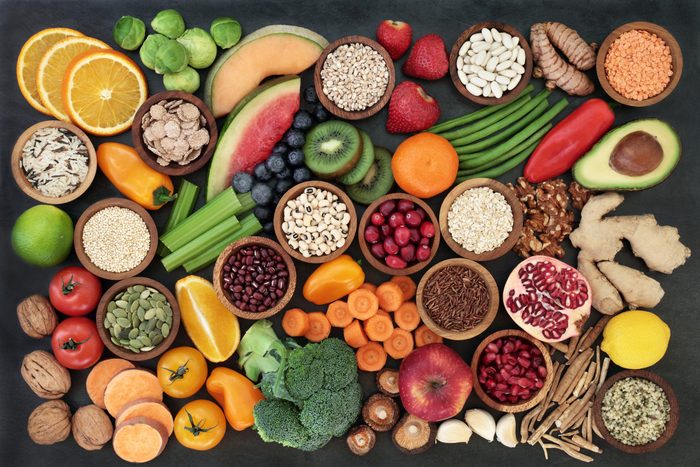
What should you look for in a fibre supplement?
Like many items on drugstore and health food store shelves, not all supplements are created equal. So don’t just pick any fibre supplement from store shelves. Shop around for a product that’s reliable and addresses your needs.
Third-party testing
“For one thing, supplements aren’t very well regulated, so you want to purchase from a company that you know does its due diligence in third-party testing,” says Amy Gorin, a registered dietitian and owner of Plant-Based Eats in Stamford, Connecticut.
No added sweeteners
Gorin also recommends fibre supplements that aren’t sweetened, meaning they don’t contain added sugar or even stevia. Even without sugar, these ingredients can get you used to a sweeter taste. “You won’t often find a fibre supplement with sugar alcohols, but if you do, I wouldn’t buy it as it may cause gastrointestinal upset,” she says.
Addresses your health needs
“When looking for a fibre supplement, I like to understand which type of fibre a person really needs and look for the best fit,” Manaker says. “There are two types of fibre—soluble and insoluble—and while both are important, they can vary slightly when it comes to their roles in the body.”
She points to the specific benefits of the soluble fibre inulin. Finding fibre supplements that contain prebiotic fibres like inulin is a good way to support overall gut health, she says. Since prebiotic fibre essentially “feeds” live probiotics, supplying the body with these fibres is a simple way to support your overall health.
What most people do not realize is that without prebiotic fibre, a source of carbohydrate that allows the fibre to do its job, we likely will not reap all of the benefits that come from getting enough fibre, Mancella says.
Prebiotic and probiotic combo
Probiotics help support health goals, too, and many brands are including these live organisms in their supplements. Combining prebiotic fibre supplements with live probiotics gives the body a one-two punch in the gut health department, Manaker says.
(Related: What You Need to Know About the Mind-Gut Connection)
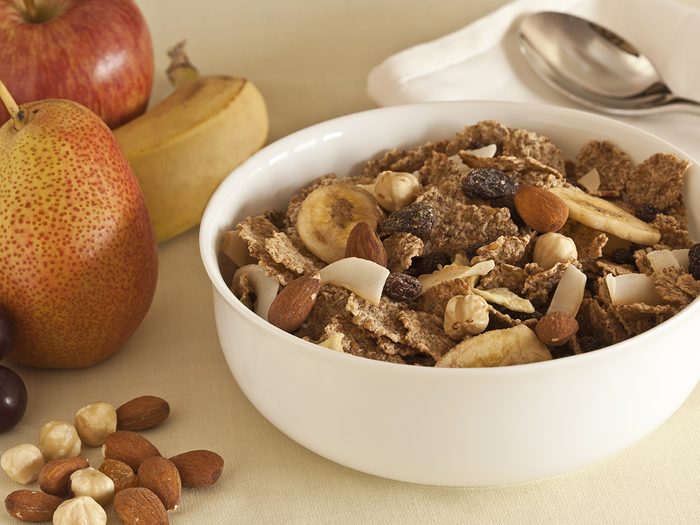
How much fibre should you take?
According to Manaker, consuming appropriate quantities is key, and using a fibre supplement that only provides one gram of fibre probably won’t be helpful. “Having something that contains at least three grams of fibre per serving is a good rule of thumb in my book,” she says.
Below, some of the best fibre supplements you can take.
(Related: 8 Healthy Plant-Based Snacks You’ll Actually Want to Eat)
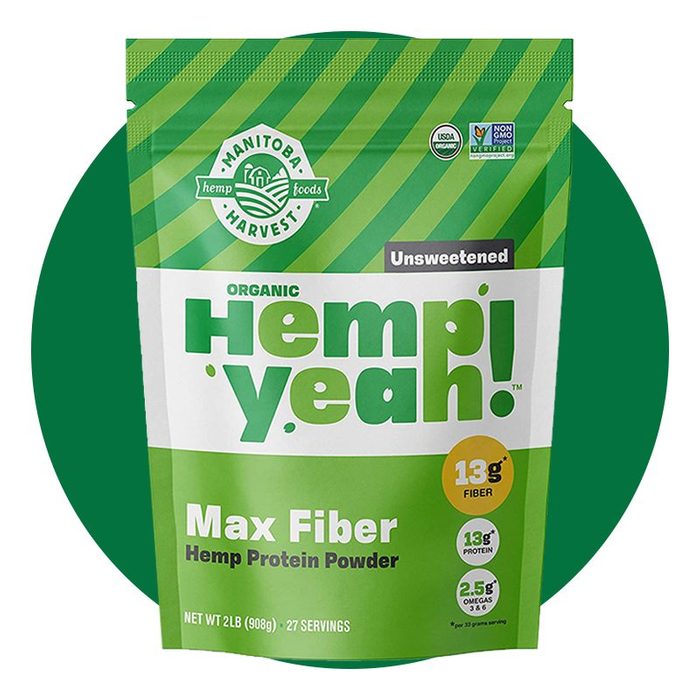
Manitoba Harvest Hemp Yeah Max Fibre Hemp Protein Powder
$20, manitobaharvest.ca
“Hemp protein is my favorite fibre supplement,” Mancella says. “This one is virtually one gram of carbohydrate per serving, and with eight grams of fibre, it can easily contribute approximately a third of your daily needs, with the added benefit of omega-3 and plant protein. My family has no idea that I add it to our brownie mix.”
(Related: How to Eat a Whole Food, Plant-Based Diet)
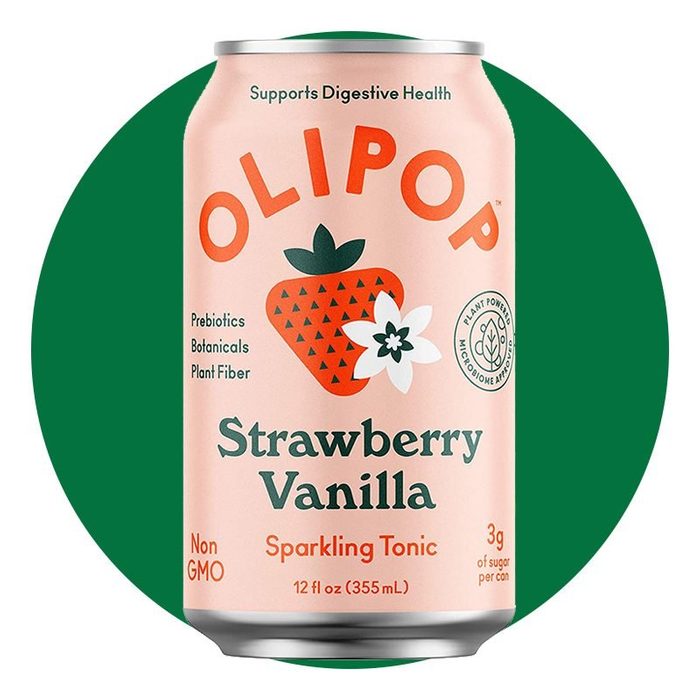
Olipop Sparkling Tonic
Yes, this is a soda, but some people use it instead of taking a fibre supplement because each can contains prebiotic fibre, says Manaker. That, and they enjoy the taste of soda. Made with prebiotic-rich foods like Jerusalem artichoke, one can of Olipop contains nine grams of fibre. It comes in seven different flavors, so you can spice things up.
(Related: Is Sparkling Water Good or Bad For You?)
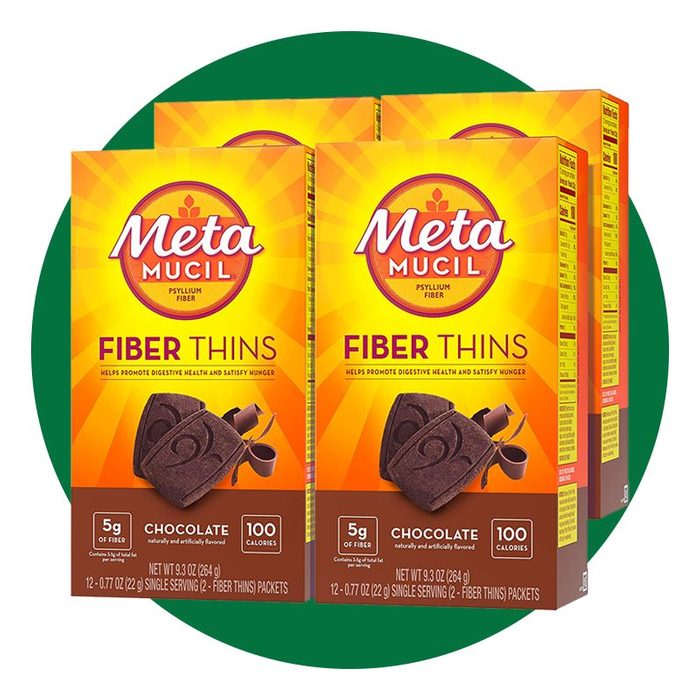
Metamucil Fibre Thins
$10, well.ca
Made with psyllium husk, these cookie-like thins are one of the most innovative ways to ensure you are getting enough fibre, offering four grams per serving, Manaker says. If you prefer a fibre supplement in capsule form, Metamucil’s other offerings are a good option as well, she adds.
Next, this is what plant-based protein is and how to incorporate it in your diet.
